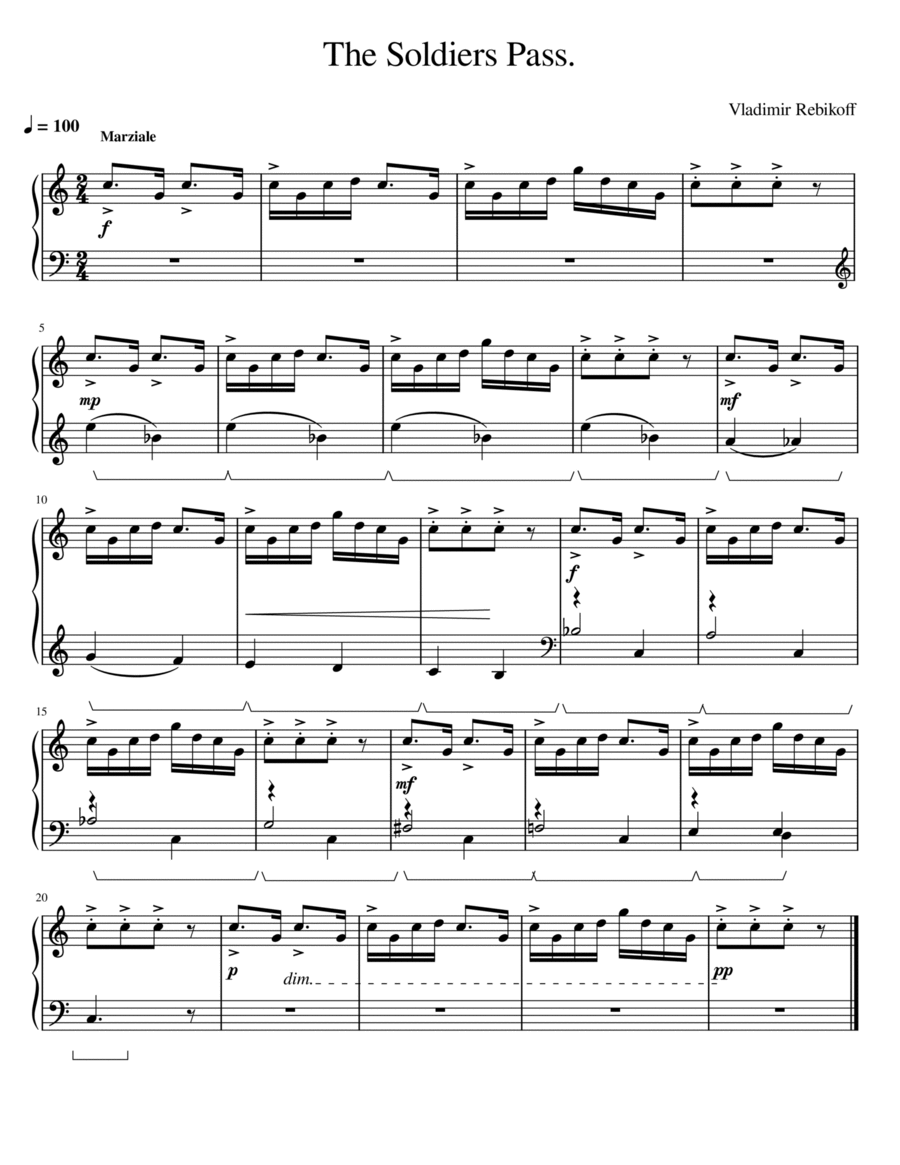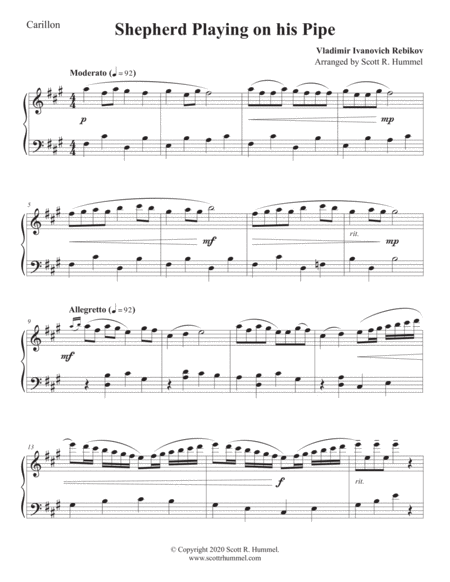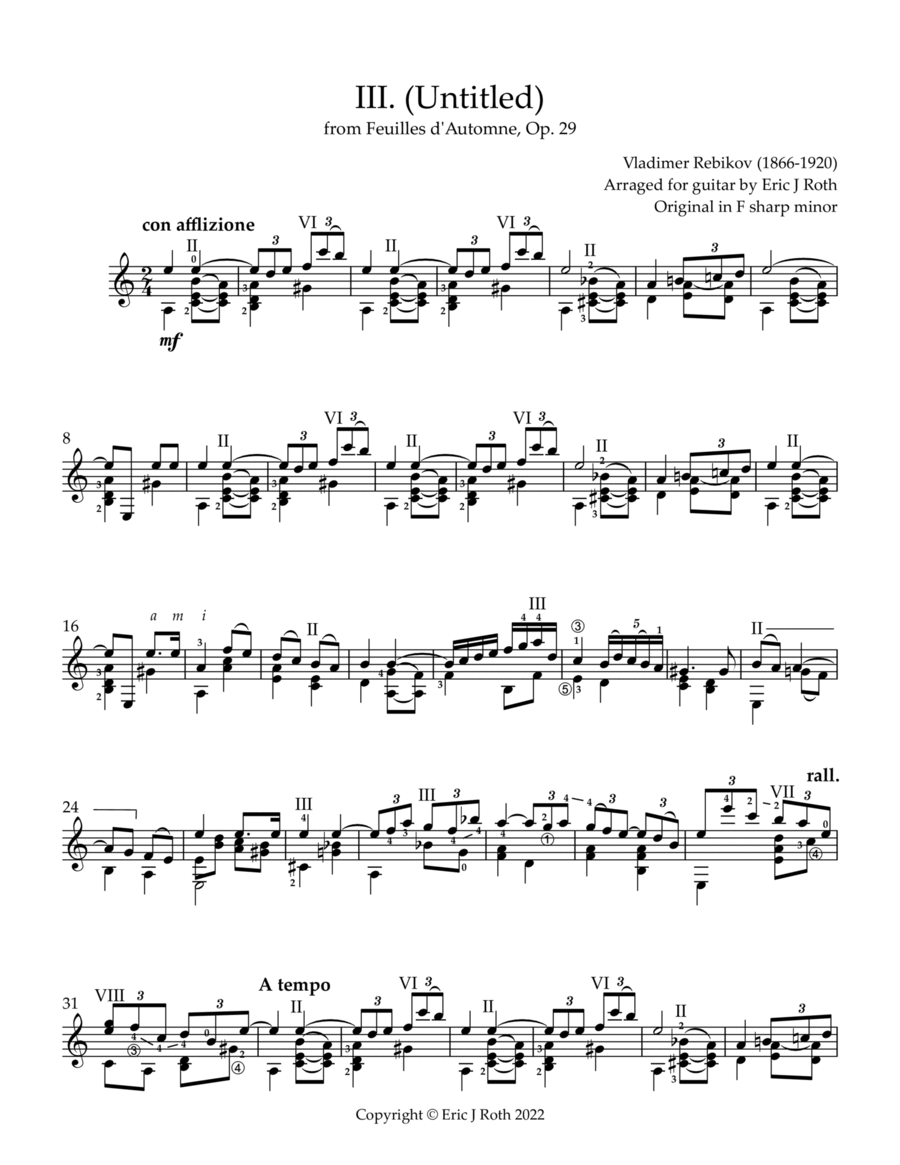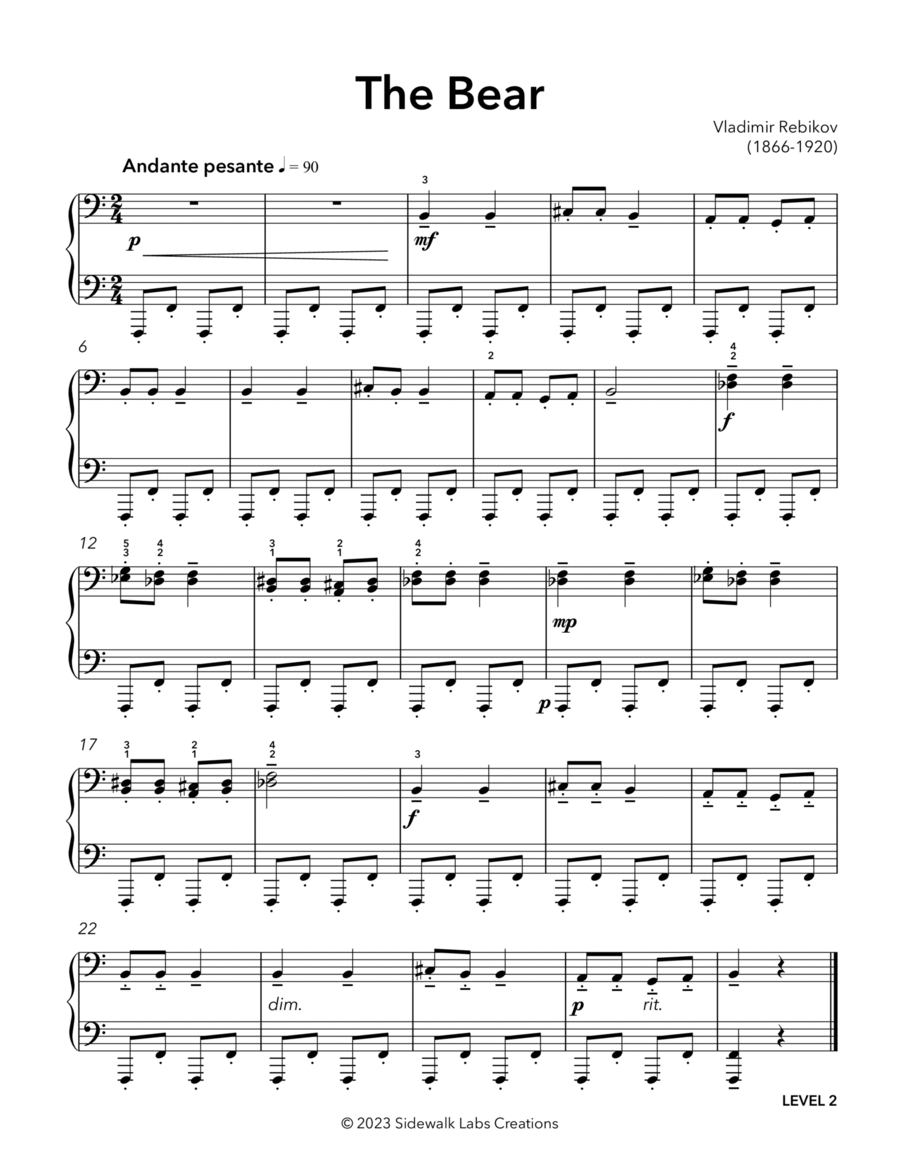Vladimir Rebikov (1866 - 1920)
 Russie
Russie
 Russie
RussieVladimir Ivanovich Rebikov (Russian: Влади́мир Ива́нович Ре́биков, Vladi'mir Iva'novič Re'bikov; May 31 [OS May 19] 1866 – August 4, 1920) was a late romantic 20th-century Russian composer and pianist.
Born in Krasnoyarsk, Siberia, Russia, into a family of distant Tatar ancestry,[1] Rebikov began studying the piano with his mother. His sisters also were pianists. He graduated from the Moscow University faculty of philology. He studie ... (Read all)
Source : Wikipedia
Born in Krasnoyarsk, Siberia, Russia, into a family of distant Tatar ancestry,[1] Rebikov began studying the piano with his mother. His sisters also were pianists. He graduated from the Moscow University faculty of philology. He studie ... (Read all)
Source : Wikipedia
FREE SHEET MUSIC
Shepherd Playing on his Pipe, Le Berger joue du Chalumeau (Silhouettes, 9 Childhood Pictures for the Piano op. 31, no. 8)
Vladimir Rebikov
Piano solo / 2 PDF / 1 MP3 / MIDI
Pastoral Scene, Ländliche Szene (Mood Sketches, Stimmungs-Skizzen op. 10, no. 1)
Vladimir Rebikov
Piano solo / 2 PDF / 1 MP3 / MIDI
Search
1 9 17

![]()
 The Soldiers Pass
The Soldiers Pass
$8.99 #Piano solo #Jose Valladares #Jose Valladares #Circlesquare Music


 Kukla - Russian Doll
Kukla - Russian Doll
$4.99 #Flute, Oboe, Clarinet (trio) #Vladimir Rebikov #Danielle Allie #Danielle Anne Allie

![]()
 Shepherd Playing on his Pipe, for carillon
Shepherd Playing on his Pipe, for carillon
$1.99 #Vladimir Rebikov #Scott R #Scott R. Hummel Music


 No. 3 "con afflizione" from Feuilles d'Automne, Op. 29
No. 3 "con afflizione" from Feuilles d'Automne, Op. 29
$2.99 #Guitar #Vladimer Rebikov #Eric J Roth #Eric J Roth


 Feuilles d'Automne, Opus 29. Herbstblatter / Autumn Leaves
Feuilles d'Automne, Opus 29. Herbstblatter / Autumn Leaves
$12.95 #Piano solo #Vladimir Ivanovich Rebikow #Bisel Classics - Digital


 The Christmas Tree Waltz for Piano Duo
The Christmas Tree Waltz for Piano Duo
$6.99 #1 Piano, 4 hands #Vladimir Rebikov #Miriam Troxler #Miriam Troxler


 The Christmas Tree Waltz for String Quartet
The Christmas Tree Waltz for String Quartet
$7.99 #String Quartet: 2 violins, viola, cello #Vladimir Rebikov #Miriam Troxler #Miriam Troxler
More digital shop results ⇒
The Soldiers Pass


$8.99 #Piano solo #Jose Valladares #Jose Valladares #Circlesquare Music
Kukla - Russian Doll



$4.99 #Flute, Oboe, Clarinet (trio) #Vladimir Rebikov #Danielle Allie #Danielle Anne Allie
Shepherd Playing on his Pipe, for carillon


$1.99 #Vladimir Rebikov #Scott R #Scott R. Hummel Music
No. 3 "con afflizione" from Feuilles d'Automne, Op. 29



$2.99 #Guitar #Vladimer Rebikov #Eric J Roth #Eric J Roth
Feuilles d'Automne, Opus 29. Herbstblatter / Autumn Leaves



$12.95 #Piano solo #Vladimir Ivanovich Rebikow #Bisel Classics - Digital
The Christmas Tree Waltz for Piano Duo



$6.99 #1 Piano, 4 hands #Vladimir Rebikov #Miriam Troxler #Miriam Troxler
The Christmas Tree Waltz for String Quartet



$7.99 #String Quartet: 2 violins, viola, cello #Vladimir Rebikov #Miriam Troxler #Miriam Troxler
More digital shop results ⇒
| ||||||||||||||||||||||||||||||||||||||||













































